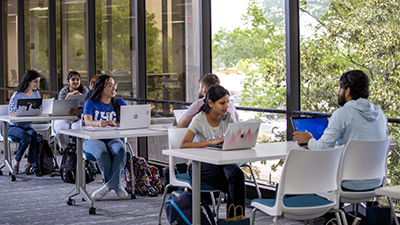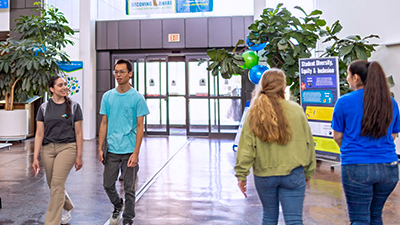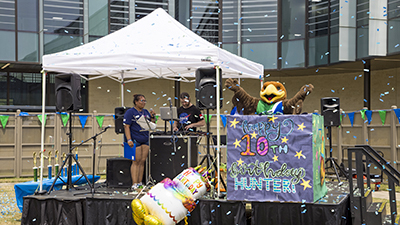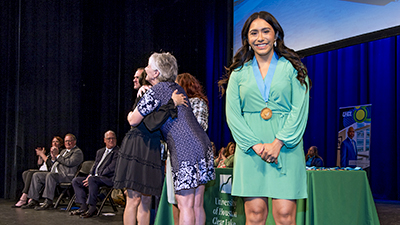UHCL prof's presentation explores migrant children's trauma
Thousands of unaccompanied migrant children who have been apprehended by U.S. border patrol are now entering American classrooms while struggling with mental health issues including anxiety, depression and post-traumatic stress disorder.
In the first presentation of the Friday Morning Continuing Education Fall Series on Friday, Sept. 24 at 9:30 a.m. at University of Houston-Clear Lake, Assistant Professor of Social Work Roberta Leal will contextualize the background of many of these children, and explore ways the community can identify the indicators of trauma unique to them.
"The process of asylum for people seeking assistance at the southern border was definitely stalled during the Trump administration," Leal said. "One of the main differences in the new administration is the expediting of connecting asylum seekers with family members and working through the vetting process. This ensures a quicker connection to a place to live, because the migrants often have extended family already living here."
Migrants are able to transition more quickly from the detention center where they're processed, go through the vetting process and await their court date.
"This does not guarantee citizenship at all," she said. "It just means they're in the process of seeking asylum and they're waiting for their court date with their family, instead of sitting in detention. This also moves some of the financial responsibility for care to the family instead of the U.S. government."
President Joe Biden did not open the border, but one policy has changed under his administration. "Under President Trump, those applying for asylum had to wait in Mexico," she said. "That created the illusion that migration had slowed drastically, or even stopped. They were still there, just waiting on the other side of the border."
Some of the most heart wrenching news and images of the last few years have been of small children and parents separated from each other at the border, the effects of a "zero tolerance" policy implemented during the Trump administration. The policy generated a huge public outcry, after nearly 3,000 children were separated from their parents for crossing the border illegally — a misdemeanor at the first offense.
"Children who are with an adult who is not their biological parent will probably still get separated — that has not changed," Leal said. "Trump's policy caused even nursing babies to be taken from their mothers. If a child is brought over by a coyote, they're often left behind by the smuggler before the asylum-seeking process begins. The smuggler is paid just to ensure passage to the border, then family members are left to go through the asylum process alone."
If the child is old enough, they're taught to state they're seeking asylum when they're picked up by border security. "It's not uncommon to see children who have names and phone numbers written in Sharpie on their skin or marked on their clothing," she said. "They're sent with perhaps a birth certificate or nothing at all, adding so much trauma to the situation."
Leal said her presentation would focus on the specific trauma of the youngest migrants, because although many adults might not have direct interaction with migrants, it's possible their children could be in a class with a child who came across the border as an unaccompanied minor.
That's because in Texas, any child of school age is required to be in school, regardless of their immigration status. But, children from Central America often have a significant education gap in comparison to American kids, and it's hard to learn when you've been through such an intensely frightening experience.
"So, the first thing a family would do when they arrive here is to enroll their child, because it's a step toward becoming a productive resident in the US," she said. "But a child who has been through this experience could be very sensitive to light, sound or touch. These are indicators of trauma — not being familiar with the system of an American school, with its large classes, gymnasiums and cafeterias. Children are not always sure what to do or how schools operate."
Recognizing mental health signs and symptoms that have happened because of the impact of the trauma might help explain some children's behavior and help educators navigate trauma that is unique to migrant children.
"My goal is to discuss what trauma looks like for elementary age kids, and offer guidance to parents and other children when they see a migrant child struggling through an emotional crisis in a classroom," she said.
Friday Morning Continuing Education presentations expand horizons in all topics and subjects. Explore the current schedule and register online.







